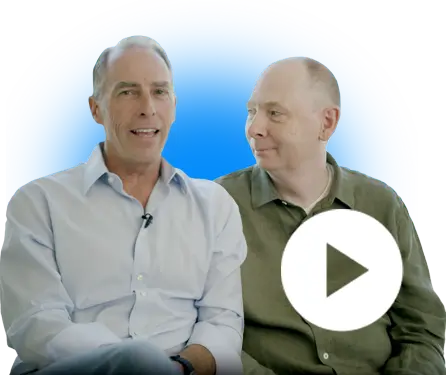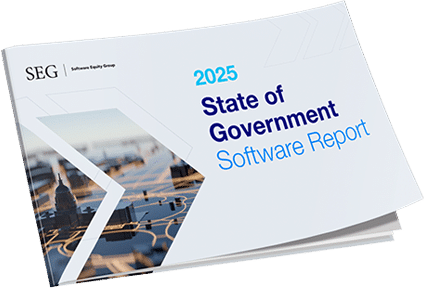Virtual Coffee with SEG: Preparing for a Future M&A Transaction from a Legal Perspective

Top Four Things Software Executives Can Do Today to Prepare for a Future M&A Transaction from a Legal Perspective
Coffee with Eric Wechselblatt, Partner, Holland & Knight
Preparing in advance is key to a successful transaction, as proper preparation can prevent surprises and ensure a smoother exit. In a recent “Virtual Coffee,” SEG’s Managing Partner, Allen Cinzori, had coffee with Eric Wechselblatt, Partner at Holland & Knight. Holland & Knight is a law firm that advises on hundreds of M&A transactions annually.
Eric and Allen discuss what software executives can do now to prepare for a future M&A transaction from a legal perspective, narrowing it down to four sections: employees, technology, customers and contracts, and taxes.
Below are some highlights from the discussion. To view the entire video, select the link below.
Click to Watch Virtual Coffee with SEG
- Eric: Regarding employees, having proprietary information and assignment of invention agreements with all your employees is something buyers expect you to have. They don’t necessarily need to include non-competes or non-solicitation provisions in them. Some buyers can get themselves comfortable if only technology people, such as developers, have those agreements. However, there is no reason not to put them in place. If you do them right, they’re enforceable in all states.
- Eric: Second, buyers like key employees to have non-competes and non-solicitation of customer agreements. Some states have laws limiting the enforceability of these agreements, so you have to consider state law. It’s often easier to get employees comfortable with non-competes with niche software businesses. Asking an employee to agree not to compete with a specific cyber technology is different from asking them not to provide services to the Federal Government if you’re a government contractor.
- Eric: Third, buyers should focus on whether you have your employees correctly classified as exempt versus non-exempt. We highly recommend doing the analysis well before a transaction.
- Eric: The final “employment-related” issue that sellers should consider is whether all independent contractors are properly classified. If you have people who only work for you, say 30-40 hours a week, and do the same things your employees do, calling them an independent contractor is risky. This can create problems such as tax and benefit issues. Buyers are often very conservative on these points.
Allen: What guidance do you have for SaaS operators around technology?
- Eric: This is probably the most diligenced area in a software transaction. The focus on the legal side is tracing IP ownership. A buyer wants to make sure that you own the IP you say you own and have an appropriate license for the IP you say you license. Employees already legally assign to the company almost everything they do for the company in the scope of employment, but buyers often like to see this documented in an agreement. More importantly, if you use consultants, whether they’re individuals or entities, they don’t automatically assign something they created for the seller. It is very important that every consultant or independent contractor involved in creating IP sign an assignment of inventions agreement.
- Eric: Third is the use of open source. Buyers want to make sure that you’re using open source properly and are most concerned with copy-left provisions. Ideally, your company is keeping an open source log. Buyers will actually hire third parties to do a code search and see if you’re using it properly.
- Eric: Finally, sometimes companies create functionality for specific customers. You need to be careful in your customer agreements and ensure that you own whatever IP is created. Sometimes there’s a little bit of loose language in customer contracts when that occurs. Often, that functionality is re-used, so you can see a concern a buyer might have — that the customer owns the special functionality, and it is being re-used improperly.
Allen: What about guidance on customers and contracts?
- Eric: I view customer contracting as blocking and tackling. I know smaller companies do what they need to do to get revenue in, and buyers expect that. At the same time, companies need to keep several things in mind.
- Eric: First, if you have big customers who have a lot of leverage, you often end up having highly negotiated customer contracts. At a minimum, someone needs to keep track of the customer contract terms that differ from your standard terms. In these agreements, you may agree to a provision that requires consent in connection with an assignment. If you sell your business’s assets, you are assigning your contracts and might need consent from those customers. If you’re selling stock, you might have a provision that says you need the customer’s consent in connection with the change of control. To the extent you can avoid those provisions in your contracts, especially when you have customer concentration and big customers, that’s important.
- Eric: Similarly, and more importantly, big customers sometimes want the most favored pricing provisions (that is, the right to get your lowest price), or they may not want you to do business with their competitors. Sometimes, when you’re bringing in revenue, it’s reasonable to agree to these terms, but buyers don’t like those provisions. They especially don’t like them when they apply to “the company and its affiliates.” When a buyer buys your stock, they become your affiliate. Therefore, if you agree that you and your affiliates will not compete with Company ABC, that non-compete can infect the buyer who may already do business with the competitors. In this case, the buyer cannot move forward with the transaction. We do not see this often, but it can be very problematic if it does come up.
- Eric: We recommend that as soon as you start thinking about M&A or sooner, go through your customer and other agreements, whether it’s you or your lawyers doing the work. The idea is to try to chart out the material terms since you will have to do so as part of the transaction anyway. This chart should include the name of the contract, parties, start and end dates, consent in connection with the change of control, consent in connection with assignments, whether you have special pricing provisions, non-competes, reasonable caps on indemnity, etc. Buyers like to see language that provides that you can’t be liable for consequential damages and that you aren’t liable for more than the customer paid you. However, when you have bigger customers, you might not have the leverage to fight those points. If you know the terms of your contracts, especially those that are non-standard, it leads to a smoother process.
Allen: What advice or guidance can you provide to software operators today around sales and use tax?
- Eric: In transactions under $50 million, about 75% of the companies I see haven’t been properly paying sales and use tax. In certain states, you are required to pay sales and use tax if you have nexus with that state. Nexus used to mean that you had enough touchpoints with those states, such as having an office or employees in those states or repeatedly sending your salespeople to visit customers in those states. This is called physical nexus. If you have physical nexus states and they tax what you do, whether SaaS or otherwise, you might owe sales and use tax in that state.
- Eric: The law has evolved to add a concept of economic nexus, which means that even if you don’t have physical nexus, if you have enough revenue or transactions in a state, you can also have nexus, and you may owe sales and use tax. Note that some cities charge sales and use tax as well.
- Eric: You can include a provision in your customer contracts that requires your customers to reimburse you for sales and use tax. Practically speaking, some businesses are nervous about collecting it from their customers. You also need to make sure you analyze whether customers like states or local governments are tax-exempt.
- Eric: Remember that buyers will review sales and use tax in diligence almost 100% of the time.
“Virtual Coffees with SEG” are conversations with industry experts, providing real-time insights into the current market and self-help advice to SaaS CEOs and operators. View our last Virtual Coffee with SEG: Understanding the Importance of COGS.









